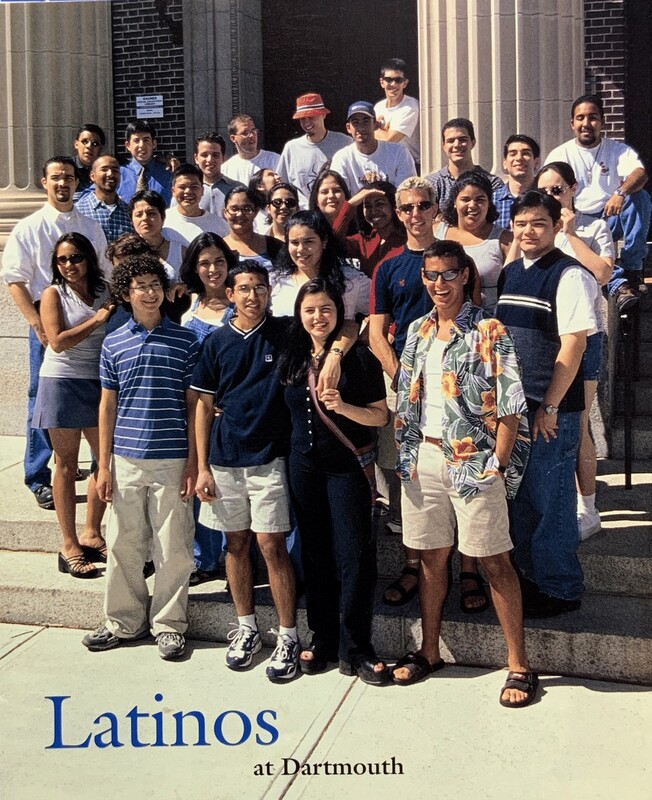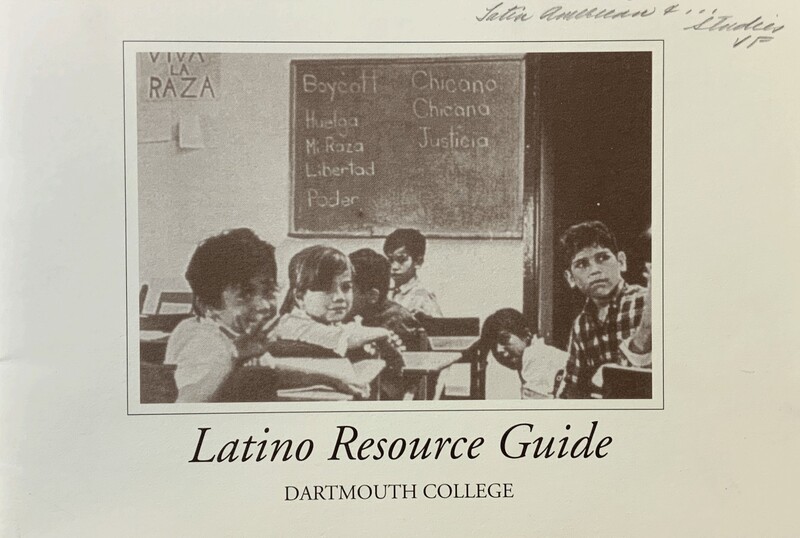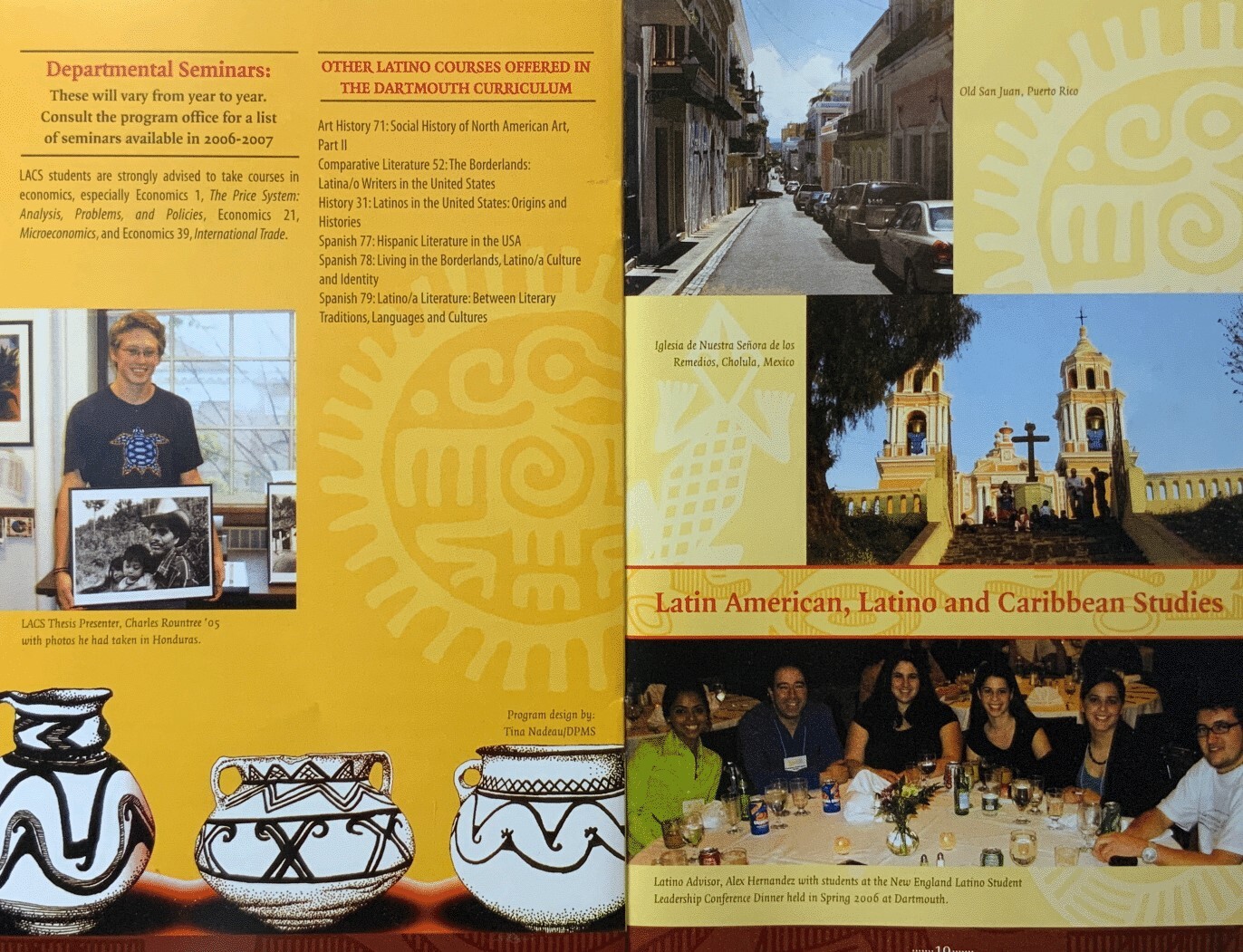Someone visiting Dartmouth College in 2022 will notice a robust Latin American, Latino, and Caribbean Studies (LALACS) Program, affinity housing, a vibrant Latinx art collection at Dartmouth's Hood Museum of Art, a Latinx alumni organization, and an active Latinx student population. That same visitor may not recognize that much of this is the result of faculty and student struggles during the the latter half of the twentieth century.
Students in the spring 2022 offering of LATS 3, taught by Dr. Bryan Winston, surveyed the history and culture of Latinxs in the twentieth century United States. As part of this introduction, the course focused on the emergence of liberation movements and Ethnic Studies in the postwar period, which allowed students to think critically about their predecessors at Dartmouth College and academic developments at the institution.
With this foundation, students visited Rauner Special Collections Library throughout the spring term of 2022 to research the Latinx experience and the origins of the the Latin American, Latino, and Caribbean Studies Program (now a department) at Dartmouth. Students examined the papers of long-time faculty member Maryssa Navarro, organizational papers of Latinx student groups, administrative correspondence, and more. After gaining a firm grasp of the historical record, students identified key items to exhibit in order to allow visitors to explore Dartmouth's Latinx past. Then they put their findings from the archive into conversation with recent scholarship and their own experiences on campus. The result is the following digital exhibit, which provides a partial history of Latinx student experiences and the development of Latin American and Caribbean Studies and Latino Studies during the 1980s and 1990s.
The bulk of this exhibit ranges from the late 1970s to the early 2000s. This framing is partially because of the importance of Maryssa Navarro's papers to understanding the late twentieth century transformation of Dartmouth. It is also because this was a time that Dartmouth Latinx students, their organizations, and their allies appeared more frequently in the archival record.
The student-created pages that follow delve deeper into particular aspects of student life here. Visitors will find information on Latinx student organizations, cultural events, and daily life. The Dartmouth administration also figures prominently into this digital exhibit as students analyzed pressures on the administration, administrators motivations and failures, the different efforts to recruit Latinx students, and the debates over whether the creation of a Latino Studies program would contribute to increased Latinx enrollment and retainment. In fact, one will learn that it was not until 1998 that Latin American and Caribbean Studies and Latino Studies merged to create the LALACS Program.
Exhibit Content:
Thanks to Laura Braunstein, Morgan Swan, and Jill Baron for their support of student research and facilitating the creation of these exhibits.



